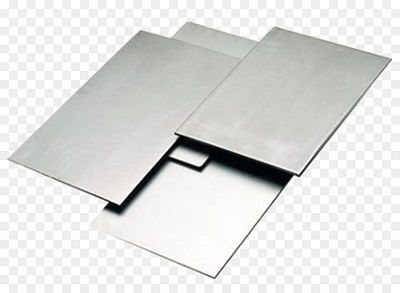Effects of Molybdenum on Properties of Stainless Steel
- Suri Weng
- Aug 22, 2018
- 2 min read
Like tungsten, molybdenum is a kind of refractory rare metal with a melting point of 2620 ℃. It has strong interatomic bonding force, small expansion coefficient, as well as good conductivity and thermal performance. The effects of molybdenum on the properties of stainless steel are as follows.
Molybdenum has no significant oxidation effect on stainless steel. Therefore, the addition of molybdenum has little effect on its mechanical properties at room temperature when chromium-nickel stainless steel maintains a single austenite structure and no intermetallic precipitation. However, with the increase of molybdenum content, the high-temperature strength of steel, such as durability, creep and other properties will be greatly improved, so the molybdenum-containing stainless steel is often used at high temperature.

The addition of molybdenum increases the high-temperature deformation resistance of the steel, and there is often a small amount of ferrite in the steel, so the molybdenum-containing stainless steel is less processed than non-molybdenum-containing steels, and the higher the molybdenum content, the worse the thermal processing performance. Besides that, molybdenum-containing stainless steel is easy to precipitate in one million times, which will significantly deteriorate the plasticity and toughness of the steel. Attentions should be paid to prevent the formation of intermetallic phase in steel in the production of molybdenum-containing stainless steel, equipment manufacturing and application process.
The main function of molybdenum in stainless steel is to improve the corrosion performance of reducing medium and corrosion resistance to spot corrosion and crack corrosion. Molybdenum is useful except in the oxidizing medium HNO3. Therefore, molybdenum-containing stainless steels are generally free from nitric acid corrosion.
The reason of molybdenum as alloy element to stainless steel reducing medium as well as surface corrosion and crevice corrosion is not completely clear. However, many experiments have indicated that the corrosion resistance of molybdenum is only effective when there is relatively high amount of chromium in the steel. Molybdenum is mainly used to strengthen the corrosion resistance of chromium in the steel. Meanwhile, the corrosion inhibition of molybdenum formed by acid salt has also been proved by experiments.
Stanford Advanced Materials supplies high-quality molybdenum products to meet our customers' R&D and production needs. Please visit http://www.samaterials.com for more information.






Comments